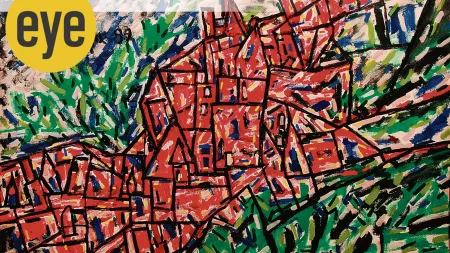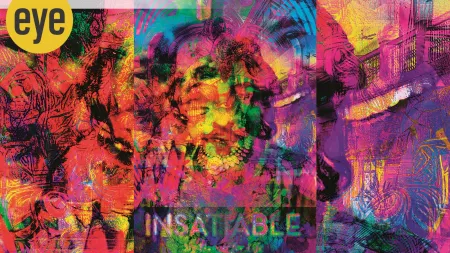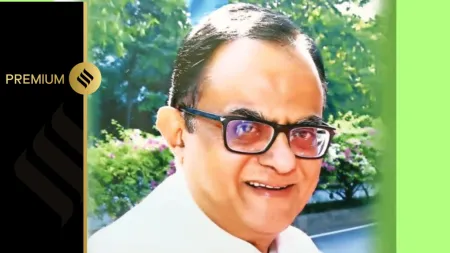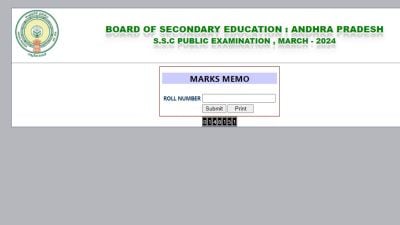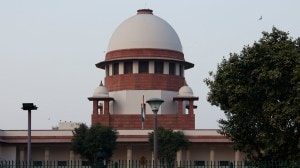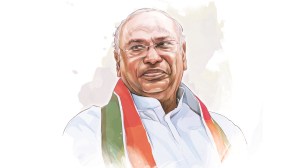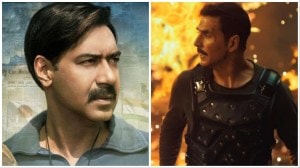- India
- International
Explained: The many obstacles in making Washington, DC the 51st US state
Although the House has approved the bill and Biden has signalled his support for the measure should it become law, the statehood question is expected to hit a roadblock in the Senate.
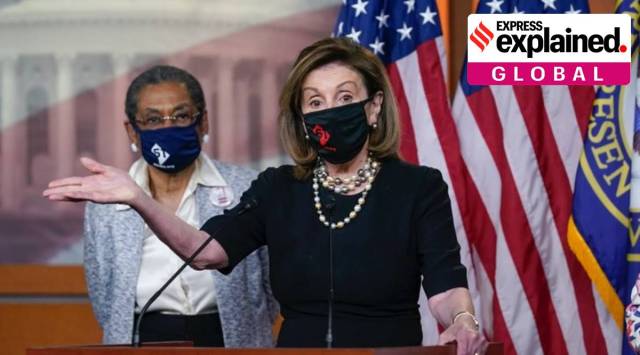 House Speaker Nancy Pelosi, D-Calif., joins Del. Eleanor Holmes-Norton, D-D.C., left, at a news conference ahead of the House vote on H.R. 51- the Washington, DC Admission Act, on Capitol Hill in Washington, Wednesday, April 21, 2021. (AP Photo/J. Scott Applewhite)
House Speaker Nancy Pelosi, D-Calif., joins Del. Eleanor Holmes-Norton, D-D.C., left, at a news conference ahead of the House vote on H.R. 51- the Washington, DC Admission Act, on Capitol Hill in Washington, Wednesday, April 21, 2021. (AP Photo/J. Scott Applewhite)The Democrat-controlled lower chamber of US Congress on Thursday approved a bill to make the nation’s capital city the 51st state. Voting strictly along party lines, the House of Representatives gave the go-ahead for Washington DC’s long-held demand of obtaining representation on par with the remaining 50 US states. The bill has also received support from the Biden White House, which has called the city’s current status “an affront to the democratic values on which our Nation was founded”.
The process to make DC the 51st state, however, is far from over. A look at the city’s history, demands for representation, and the political deadlock between Democrats and Republicans to explain why that is so.
Why is Washington DC not a state?
After the US declared independence from British rule in 1776, the country’s founding leaders desired that the new national capital should be founded on a federal district, and not be a part of any state. The district which was thus created was named after the explorer Columbus, and the city after George Washington, the first US president.
Since its founding, numerous legislative initiatives tried to expand representation for DC, but these efforts only gathered pace during the Civil Rights era of the late 1950s. In 1961, the 23rd Amendment to the US Constitution was passed, giving D.C. residents the right to vote for president starting in 1964. Since 1974, the city has had its own council and mayor, but continues to be under the direct jurisdiction of the US Congress. D.C. gets one member in the House of Representatives, who has no voting power.
In 1985, a constitutional amendment that would have given DC several rights of a full state failed. Another setback came in 1993, when the House of Representatives voted down statehood for the city’s then six hundred thousand residents.

Despite the delays, though, statehood remains an overwhelmingly popular demand among DC residents. In a 2016 referendum, 85% voted in favour of becoming a state.
Statehood proponents argue that DC residents have to pay federal income tax, and often cite the Revolutionary War slogan “no taxation without representation” in protest to underline their demand. Indeed, this line has featured on thousands of number plates of motor vehicles in the city, including on the limousines of Presidents Bill Clinton, Barack Obama and now Joe Biden, all leaders who have openly backed the demand for statehood.
So, what led to renewed calls for statehood?
Last year, the DC statehood question again came to the fore after Black Lives Matter protests rocked the nation’s largest cities– including DC, where African Americans are the largest ethnic group, making up just less than half of the city’s 68 lakh population.
In June 2020, the Democrat-controlled House of Representatives passed a law that would shrink the District of Columbia to only include key federal government buildings, and convert the rest of the current District into a 51st US state, which would be named after the leading 19th-century Black abolitionist Frederick Douglass. That law failed in the US Senate, which was then Republican-controlled.
Another impetus came this year after right-wing activists sieged the US Capitol on January 6, when it was pointed out that city leaders did not have the authority to mobilise the National Guard like governors of full states can.
‘HR 51’, the new bill passed on Thursday, is identical to the one that failed last year.
And, what are the political challenges?
For DC statehood to succeed, both chambers of Congress (House and Senate) would have to support the initiative, which would then require the approval of the US President. In the November 2020 general election, the Democratic Party won control of all three– the House, Senate and the Presidency.
Now, although the House has approved the bill and Biden has signalled his support for the measure should it become law, the statehood question is expected to hit a roadblock in the Senate.
In the 100-member upper house, the Democrats and Republicans are tied at 50 seats each, and Biden’s party barely holds on to power thanks to the tie-breaking vote of Vice President Kamala Harris. The Democrats’ razor-thin majority makes it difficult for them to build consensus within their ranks in dealing with contentious issues, such as the DC question.
Moreover, the Democrats could find their troubles in the Senate greatly amplified should the Republicans resort to what is known as the filibuster– a rule unique to the American political system, which requires a supermajority of 60 Senators to approve critical legislation.
There is a separate ongoing debate in the US whether this voting rule should be removed, something that the Democrats can do with a simple majority vote. On this issue too, however, their ranks are divided, and the legislative precedent still stands.
This is not where DC’s challenges end. Even if the possibility of both Congress and the President giving statehood their nod materialises, another major obstacle could still remain in the way. According to experts, the process for the capital city would only terminate when the 23rd Amendment is repealed– a daunting political task as this would require at least 38 states to agree to the motion.
But, why do Democrats and Republicans disagree over DC?
The principal reason why this entire process hits a hurdle is that both Democrats and Republicans are acutely aware of the impact that DC as a 51st state would have on the nation’s legislative math.
Currently, the Senate– the powerful upper house of the US Congress– has 100 seats, two from each US state irrespective of its population. DC is believed to be Democrat-leaning, and the addition of its two additional seats to the Senate is expected to tip the scales of power in favour of the Democrats in the long term.
Republicans have thus fiercely resisted the idea, especially because the Senate has characteristically had thin majorities in recent times. Republicans too just managed to control the chamber for six years until their 2020 loss, and the Democrats’ current mandate is even less decisive.
Former President Donald Trump, who is still the most important figure in his party, has said that the Republicans would be “very, very stupid” to admit DC as a state. Senator Mitch McConnell, the most powerful Republican in the Senate, has called the statehood efforts “full-bore socialism on the march”.
More Explained
EXPRESS OPINION
Apr 22: Latest News
- 01
- 02
- 03
- 04
- 05







